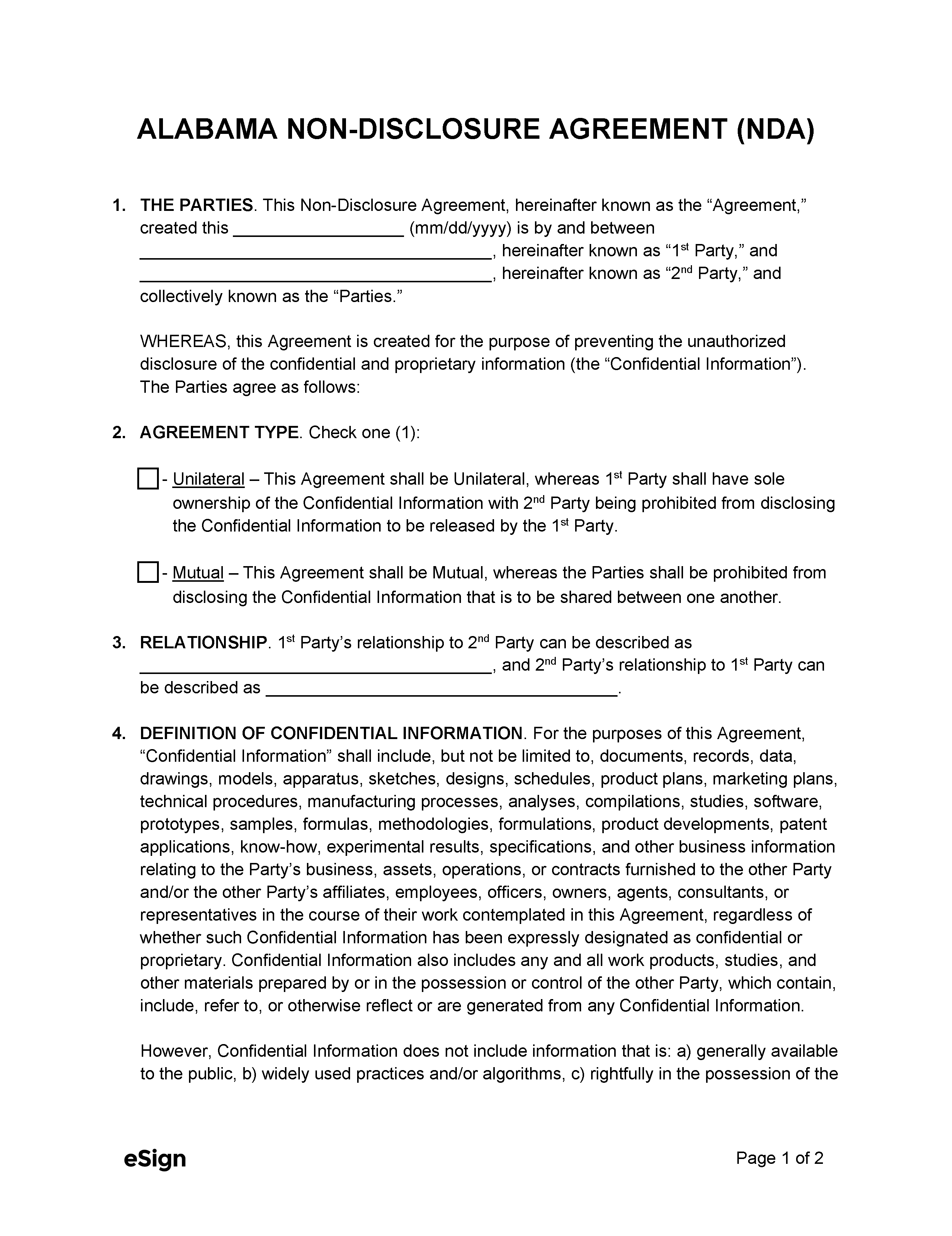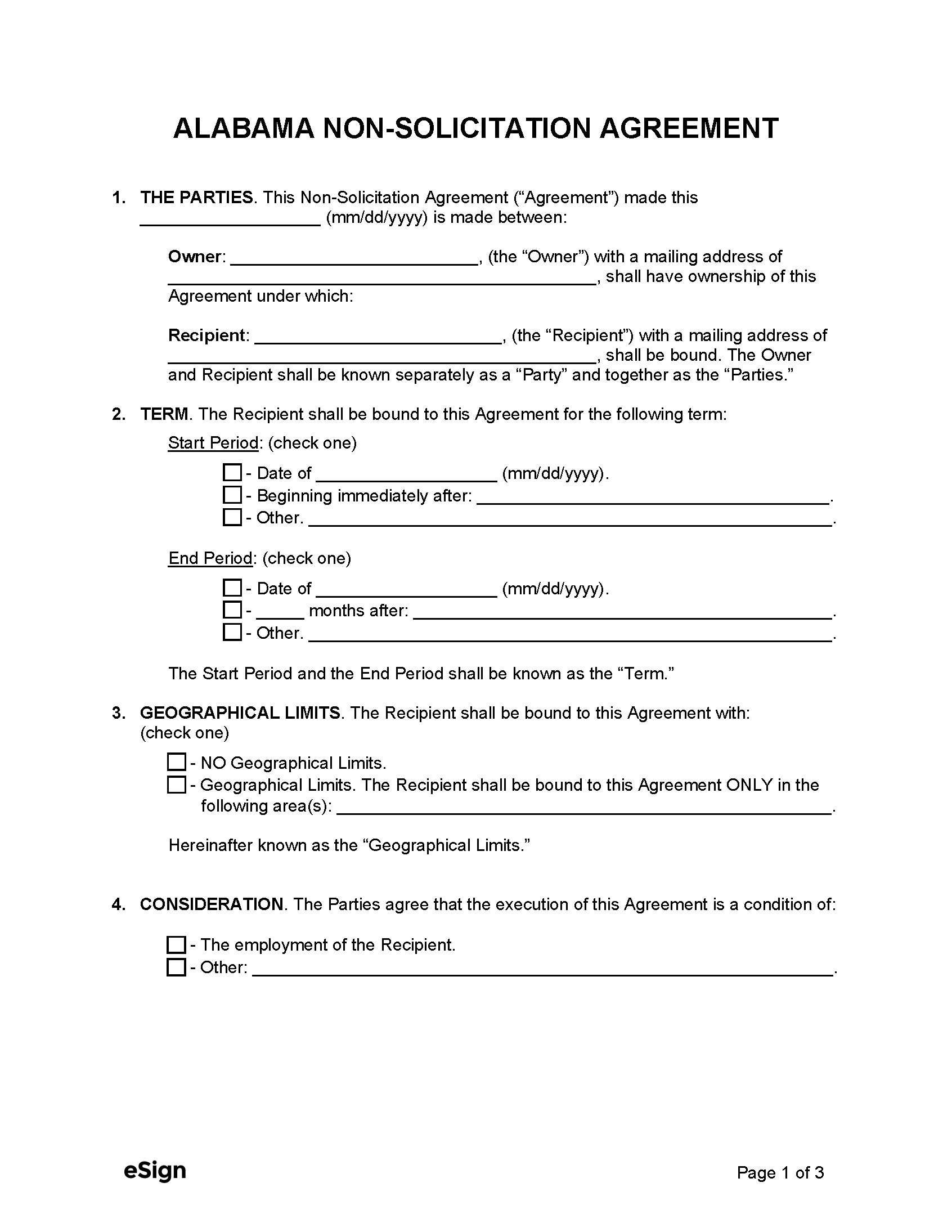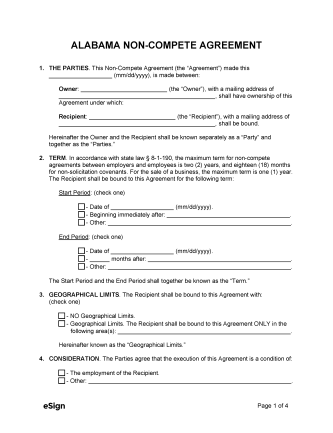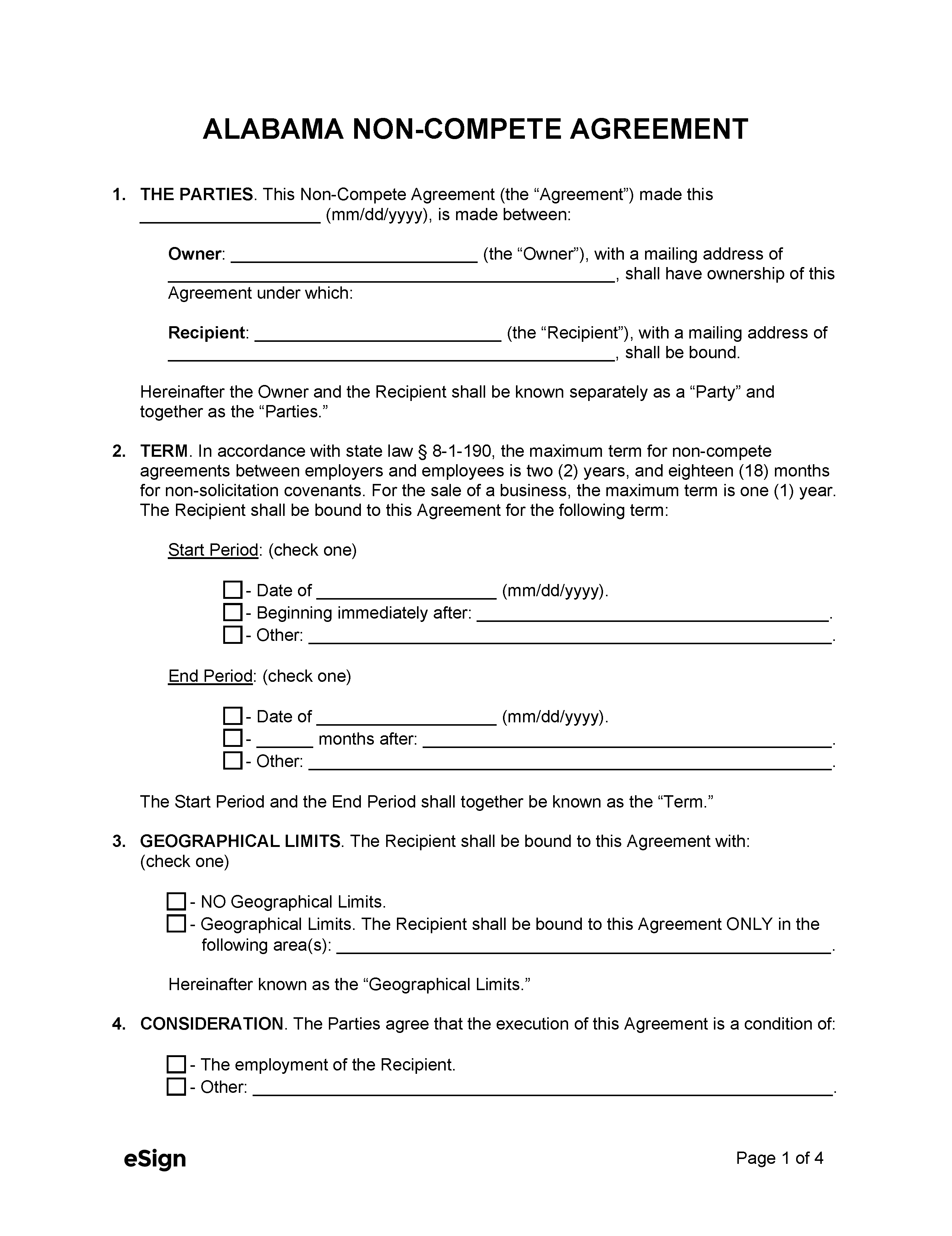In addition to preventing competition from the employee, an NCA contains non-disclosure provisions that secure a company’s confidential information by barring the sharing of trade secrets and other proprietary information that could harm the employer’s competitive advantage.
Contents |
Enforceability in Alabama
Non-compete agreements are enforceable in Alabama as long as they meet the requirements set forth in state law.[1]
When it IS Enforceable
- Non-competes generally. Non-competes are enforceable if they are in writing, supported by consideration, and include the signatures of all parties.[2] These agreements can be enforced against employees of commercial entities as long as the employer is protecting a legitimate business interest (listed below) and the duration of the agreement is for two (2) years or less (or eighteen (18) months or less in the case of non-solicitation).[1]
- Protectable interests. A protectable interest includes trade secrets, confidential information, business relationships and contacts, goodwill formed with customers, patients, vendors, and clients, and specialized training (does not include general job skills).[3]
- Unique positions. When two (2) or more parties (individuals or businesses) enter into a contract, they can enforce a covenant to prevent either party from hiring the other’s employees whose work is uniquely integral to the functionality and success of the business.[1]
- Business sale. As part of the sale of a business, a non-compete against the seller is enforceable as long as a reasonable geographical scope is established and a time limit is set (one (1) year or less is considered reasonable by state statutes).[1]
- Dissolution of a company. Members that are dissolving an entity can unanimously agree not to engage in similar activities in the same geographical area where the business originally operated.[1]
When it’s NOT Enforceable
- Restricts a professional. A non-compete that aims to prevent competition based solely on an employee’s profession is not enforceable.[4] NCAs with this objective have been voided by courts of law; the specific professions involved in these cases include accountants,[5] medical professionals,[6] veterinarians,[7] and securities brokers.[8]
- Attorneys. In accordance with the Rules of Professional Conduct, non-competes that restrict an attorney from practicing law are prohibited, with the exception of agreements involving retirement benefits.[9]
- Mediators. Non-compete contracts will not be enforced if they attempt to stop a mediator from working in their field.[10]
Maximum Time Period
The maximum time limit mentioned in state statutes on a non-compete between an employer and employee is two (2) years; however, this is a proposition, not a set rule. If the agreement specifically pertains to the non-solicitation of customers, a time period of eighteen (18) months or whenever post-separation compensation stops (whichever is longer) is considered reasonable. For business sales, a non-compete/non-solicitation maximum duration of one (1) year is presumed to be adequate.[1]
Geographical Area
When a geographical restriction is applied to a non-compete, the scope should be reasonable and can only cover areas where the entity actually conducts business.[1] State statutes do not specifically define “reasonable” but, prior to the updated 2016 statutes, courts of law factored in the type of business, the scope of their business dealings, the situation of both parties, and any other appropriate components of the relationship when determining a fair geographical area.[11]
Consideration
Current state statutes express that adequate consideration must be provided to the employee,[2] but they do not mention what constitutes adequate consideration, and no case law exists after the statutes were amended in 2016 that acknowledges this issue. For agreements entered into before that year, courts of law determined that present employment,[12] continued employment, or some form of compensation[13] were considered sufficient.
Sources
- AL Section 8-1-190
- AL Section 8-1-192
- AL Section 8-1-191
- AL Section 8-1-196
- Cherry, Bekaert Holland v. Brown, 582 So. 2d 502 (Ala. 1991)
- Benchmark Medical Holdings, Inc. v. Barnes, 328 F. Supp. 2d 1236 (M.D. Ala. 2004)
- Friddle v. Raymond, 575 So. 2d 1038 (Ala. 1991)
- G.L.S. & Assocs., Inc. v. Rogers, 155 So. 3d 263 (Ala. Civ. App. 2014)
- RPC Rule 5.6
- Alabama Code of Ethics for Mediators, Standard 11
- Parker v. Ebsco Industries, Inc., 209 So. 2d 383, 388 (Ala. 1968)
- Daughtry v. Capital Gas Company, 229 So. 2d 480, 483 (Ala. 1969)
- Digitel Corp. v. Deltacom, Inc., 953 F. Supp. 1486, 1496 (M.D. Ala. 1996)
- AL Section 8-1-193
Related Forms (2)

Download: PDF, Word (.docx), OpenDocument

Download: PDF, Word (.docx), OpenDocument

